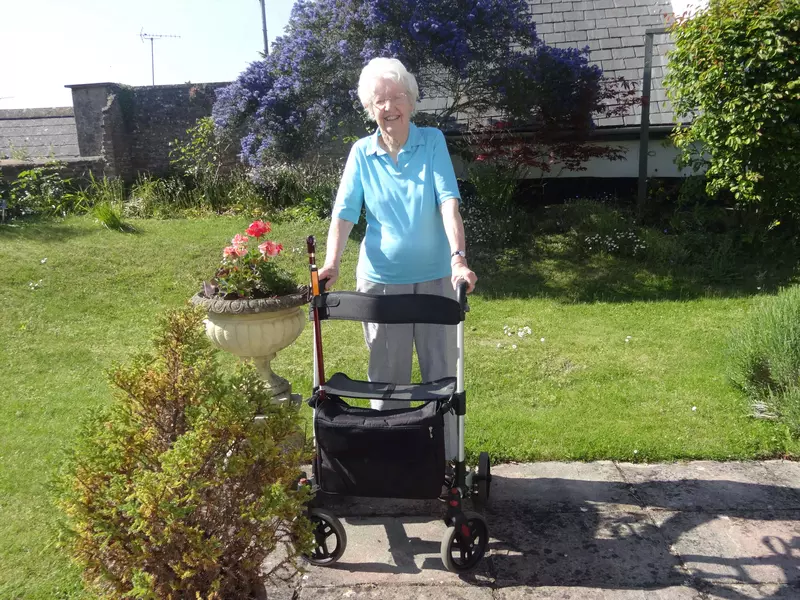Care planning when you have Parkinson's
Thinking about future care options is a common concern. Mary has Parkinson’s and lives alone in retirement housing near Exeter since her husband died 2 years ago. At 87, she has recently been considering her future care arrangements.

I’ve always been very independent. If someone asks me if they can help with anything, I normally say no, unless I am desperate for something. But recently, I’ve been thinking more about having carers come into my home as opposed to moving into a care home. At the same time, I’m trying to judge how quickly my condition will progress.
Some days are better than others, but on the bad days it would be lovely to have some help, even if it was just to make me a cup of tea. I feel I might be in more need of help at night too, because I have to get up a number of times. I often wonder what it would be like not to be responsible for all the jobs involved with running a household alone, especially with restricted movement.
But if I was in a care home, perhaps the family who visit me now wouldn’t be able to do so as easily.
Recently, my sister helped me find details of local homecare agencies. I left it for a month or so and then mentioned to her I might look into it. She told me I should treat myself!
Some days are better than others, but on the bad days it would be lovely to have some help, even if it was just to make me a cup of tea.
I now have a regular carer for 30 minutes at 7am every morning, who I get on well with. She helps me get dressed, makes the bed, sorts out the commode and makes me my breakfast. I do appreciate this help – sometimes I think I should have done it sooner. It’s expensive though, and I worry this will become costly if my needs increase.
There is a warden here, which gives me peace of mind, but I don’t see her unless there’s a problem. I also have a personal alarm, which can alert her in an emergency.
I’m not ready for residential care yet, but there are plenty of pros and cons about it to consider. It feels a pity to move when I’m happy here, so it’s not an easy decision.
The decision about care and where you live is a personal one. It is also important to recognise that the support available can vary depending on where you live. Here we share some things to think about before making care decisions and what options may be available to you.
You may feel very attached to your home and its happy memories. Or you might be in a house that is increasingly difficult to live in comfortably, so a move to a more accessible property would be a relief.
Before making any major decisions, it’s important to think about what your main concerns and fears are and whether these can be managed in other ways.
For example, if you are worried in case you have an accident or become ill, arranging a daily visitor or phone call can be helpful to check everything is OK. If you experience falls, carrying a personal alarm can offer reassurance.
If you’re concerned about being isolated at home, you could explore community transport options or volunteer drivers. These schemes can enable you to attend your usual activities.
If local support still doesn’t ease your worries, this may be a hint that a change of living arrangements may be the right choice for you.

